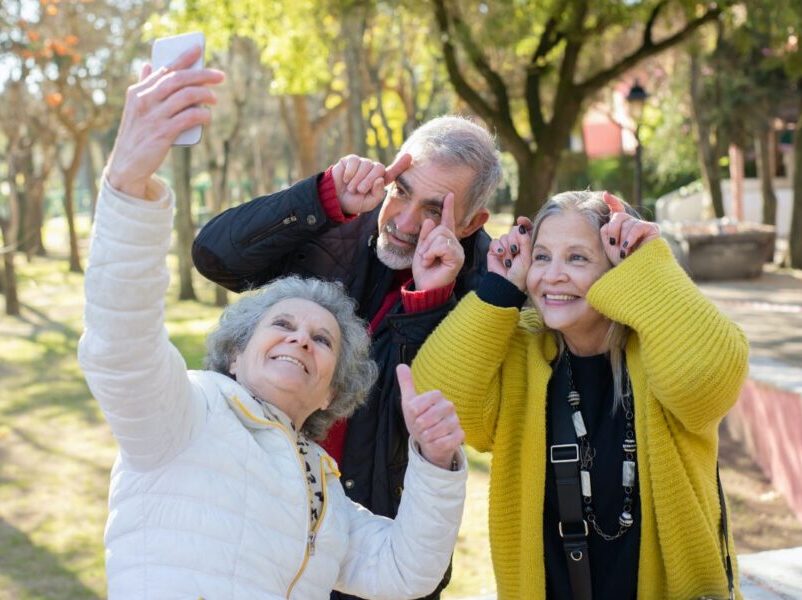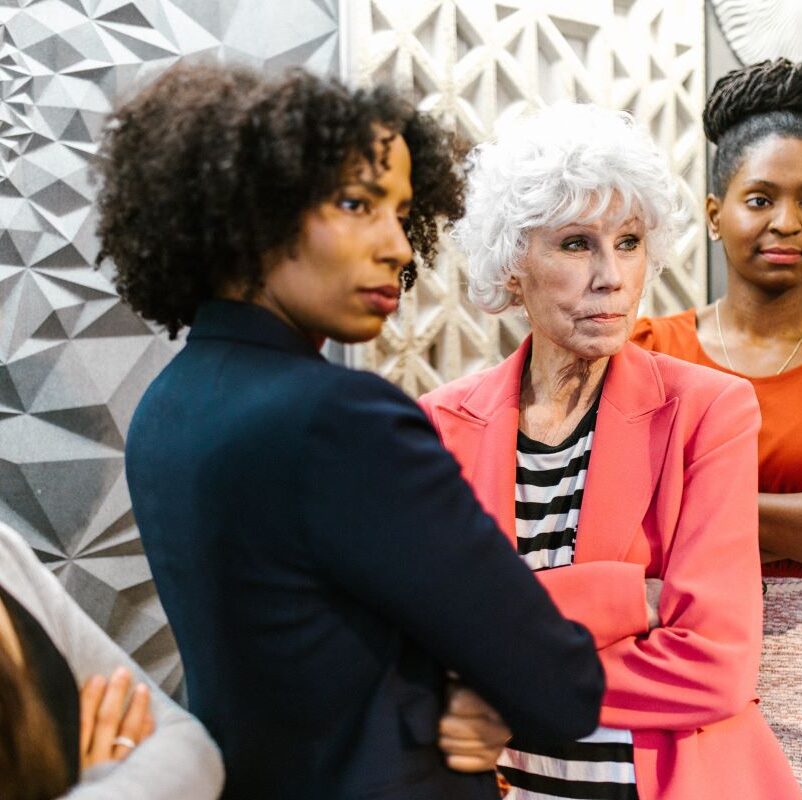
My husband and I have always been a house divided. No, nothing as exciting as school rivalry or which hometown we were raised in was smaller or better. Ours is sometimes irritating (both ways) and a frequent battle of the wills about choosing a compatible lifestyle as an early bird or night owl.
When you are single, you mostly own your schedule once you factor in necessities like work requirements. When you’re married, it is still easy to match schedules when you are both liked-minded (except when raising kids, but that’s another matter.)
It’s quite a challenge, however, to honor the other person’s preferences when they are different. While annoying at times, it’s not that unusual to be a couple where one is an early riser and likes to be up at dawn and retire after the news, while the other would love to sleep in on non-work days and binge-watch Netflix while sipping on wine until wee hours of the night.
My husband and I are that pair. We may be loving on the outside, but sometimes can’t resist making snide comments to another other, like “it’s about time you woke up” to “are you going to bed already, old lady?” So, yeah, in case you haven’t guessed it yet. I’m the early riser. He’s the night owl.
This opposite schedule has worked through almost 30 years of give-and-take. Until, suddenly, we’ve noticed, we both are rising earlier, eating earlier, and going to bed earlier. What has happened? Are we suddenly “old?” Thankfully, our age isn’t the main reason for becoming early birds together. Whew! Senior denial prevails once again!
A Look Back When Nighttime Was Where the Action Was
 Flash back to early in our relationship, when we both worked hard, frequented happy hours with friends, eventually succumbing to hunger and sauntering to a restaurant about 10 p.m. Sometimes, we went somewhere after that.
Flash back to early in our relationship, when we both worked hard, frequented happy hours with friends, eventually succumbing to hunger and sauntering to a restaurant about 10 p.m. Sometimes, we went somewhere after that.
Before life with rising careers and raising three kids consumed our days and nights, we were part of the generation that went to night clubs and danced into the early hours, and ended the evening with a road trip to an all-night diner.
But, back to the present, we have both noticed that something in society has changed. Call it a time shift. We live in a lively part of the Dallas-Fort Worth area, but sometimes we struggle to find restaurant open after 9 p.m. when our infrequent late nights call for it. That early bird mentality is something we never used to see.
In addition, everything seems to be happening “earlier.” Say, what? At least one of us in the marriage is happy about it. The other? Not so much.
Instead of restaurants flourishing with ultra-cool evening vibes, we’re seeing an abundance of breakfast places popping up all over. They are wooing the early bird crowds with promises of fresh-fruit laden waffles and pancakes, omelets to-die for with chorizo or wagyu beef, and even Bloody Mary cocktails with so many toppers, are almost a meal unto itself. And lunches beckon anything but ordinary with too many options to pass up, meaning by evening, everyone is fat, happy, and “settled in” for the night.
When we went out to dinner this week at one of our favorite establishments, we noticed that it was completely full of people waiting for a table before 6 p.m., while tables opened up at 7 p.m. The place was practically empty by 8 p.m. How can this even be? With diners of various ages and kids/no kids, I felt relief in thinking, at least it’s not that “senior supper” crowd!
What’s Going On With the Early Birds?
I’ve found that our observations aren’t related to where we live in Texas, but seem to be a trend across the United States.
Restaurants are shifting their hours earlier, adding in breakfast and weekend brunch, and closing earlier. Even happy hours, which traditionally were 5-7 p.m., have shifted to 4-6 p.m. in many places. Places that offer evening live music are also shutting down their kitchens earlier, starting the music earlier, and closing for the night before the clock strikes 11 p.m. Wow! Cinderella had a later curfew than that!
Social engagements are becoming earlier as well, with people meeting up in the afternoon or for brunch, instead of late nights hanging outdoors and watching the moon rise.
The entertainment industry is also following suit, with adding in earlier times for movie showings, and game/video places offering earlier opening times as well. I was surprised to see a local bowling alley—a late-night fun event in my day—offering lane times early morning. As a huge HUGE Broadway fan, it was a shock to see times moved up for performances as well in many locations—even New York City! Wow, are they thinking we can’t stay awake for that long?
Are we becoming An Early Bird Nation of Homebodies?
So, are we all now early birds? For the most part, the answer seems to be yes. And the shift to remote and hybrid work lifestyles is a key reason why.
When you think about it, it’s easy to understand how early birds won the schedule battle (at least for now).  Before the pandemic, when it seemed like practically everyone commuted to the office, restaurants and evening entertainment peak times focused on when most people could get home, and then to where they wanted to go.
Before the pandemic, when it seemed like practically everyone commuted to the office, restaurants and evening entertainment peak times focused on when most people could get home, and then to where they wanted to go.
It’s not that people weren’t early risers before, because that’s what it took to get to their jobs, is what they did after they were on personal time after work.
With today’s current work evolution (or is it revolution?), people are either working from home, have adapted to a hybrid work schedule, or have chosen to take jobs that are close to their home. That, added with the pre-Covid notion that you had to work insane hours to get ahead, has been changed to the belief that when it’s 5 p.m., “my day is done” mentality.
When my husband Rick was working his management position at a Fortune 100 Company, he was an early riser and drove off to work, often before sunrise. I knew not to expect him home before 6 p.m. on any day, but the reality is that he would pull up in the driveway closer to 7 or even 8 p.m. on most nights. It was just what it took.
That’s changed. And until recently, he was fully remote. Now, he works in office two-days a week, as employers are putting in the mandates for return-to-the-office for so-called “enhanced collaboration” times.
With his current job and global responsibilities, Rick begins most work days extremely early (while others have to stay late where they live in other countries) so that they can meet virtually.
The implications of being an early bird for work has changed the definition of his traditional work day. Whether departing from his physical office or exiting the office in our home, my husband is leaving work earlier as well. In addition to the shift in starting earlier, I attribute it to him finally learning to put a period at the end of his workday. Now, when his laptop closes, the day is done. He’s ready to get his personal time and fun earlier, and as a result, isn’t quite the night owl he used to be.
The Flight From Night Owls to Early Birds
Here are 3 additional reasons for the shift from night owls to early birds in recent years as well.
- An increased emphasis on productivity and self-improvement
With hectic schedules and demanding workloads, individuals are realizing that waking up early provides them with valuable extra time to exercise, meditate, or engage in other activities that contribute to their overall well-being and mental health. - The rise of technology and its impact on our sleep patterns
The prevalence of smartphones, tablets, and laptops has led to a constant stream of notifications and information available at our fingertips 24/7. This constant stimulation can disrupt sleep patterns and make it difficult for night owls to maintain their preferred schedule.As a result, many people are opting to adjust their routines and become early birds by waking up earlier in order to reclaim control over their time and establish healthier boundaries with technology use.
In addition, technology advancements have made it easier for individuals to control their sleep schedules by offering apps that track sleep patterns or simulate sunrise alarms that gradually wake them up naturally before their desired time.
- Societal changes such as flexible working hours and increased interest in personal development
Many companies now offer flexible schedules that allow employees to start their day earlier if they choose. This freedom enables individuals to align their work with their natural rhythms while still maintaining a healthy work-life balance.Also, waking up before the rest of the world allows individuals alone time before the chaos and provides a peaceful beginning to the day. It also supports the growing popularity of morning routines focused on self-care practices like journaling or mindfulness.
Research supports this notion as well. Studies have highlighted how individuals who wake up earlier tend to experience better overall health due to adopting healthier lifestyles such as regular exercise routines and balanced diets.
As people become more aware of these health benefits, they are motivated to adjust their sleeping patterns accordingly.
The Influence of Technology and Productivity Culture of Early Birds
In today’s fast-paced society, technology plays a significant role in shaping our lives. With the advent of smartphones, laptops, and other gadgets, we are constantly connected to the digital world.
This constant connectivity has led to the rise of a productivity culture where being busy and always available is seen as a badge of honor. As a result, many people are becoming early birds to make the most out of their day.
One reason why technology has influenced this shift towards early rising is because it enables us to do more in less time. The convenience of smartphones allows us to answer emails or complete tasks while still in bed, saving precious minutes that would have been wasted otherwise.
Also, work-related apps and platforms enable remote work opportunities which further encourage individuals to start their day earlier.
The Role of Social Media in Promoting Early Birds
One of the contributing factors to the nation’s growing trend of early rising is undoubtedly social media. Platforms like Instagram and Twitter have created a culture that glorifies waking up early, with users sharing their #morningroutine and #sunrisepics.
This constant exposure to images and posts about productive mornings can influence individuals to adopt similar habits.
Social media provides an avenue for communities centered around early rising to thrive. Online forums and groups dedicated to morning routines offer support, advice, and motivation for those looking to establish a consistent wake-up time.
The sense of belonging and accountability within these communities encourages individuals to maintain their commitment towards rising early.
Why Older Americans Tend to Be Early Birds
So, why do we tend to become early birds as we age?
 One possible explanation for why seniors tend to be early birds is the natural changes that occur in sleep patterns as we age. As individuals grow older, their circadian rhythm – the internal clock that regulates sleep and wakefulness – tends to shift earlier.
One possible explanation for why seniors tend to be early birds is the natural changes that occur in sleep patterns as we age. As individuals grow older, their circadian rhythm – the internal clock that regulates sleep and wakefulness – tends to shift earlier.
This means that seniors often feel tired and ready for bed earlier in the evening and naturally wake up earlier in the morning. This change in sleep pattern could explain why many older adults find themselves waking up at dawn, feeling refreshed and ready to start their day.
Another factor that contributes to older Americans being early birds could be related to lifestyle changes during retirement. With no set work schedule or daily obligations, retirees have more freedom to structure their days as they please.
Many seniors take advantage of this newfound flexibility by adopting an early bird routine that aligns with their natural sleep-wake cycle. Consequently, they may choose to go to bed earlier and rise with the sun, enjoying the quiet serenity of the morning hours before starting their daily activities.
Overall, whether due to biological changes or lifestyle choices, it appears that seniors tend to be early birds.
Embracing an early morning routine can provide a sense of peace, productivity, and an opportunity for self-care before others awaken – all contributing factors as to why many older individuals prefer the early birds lifestyle by starting their days bright and early
Contact Us
Written by
Robin McClure
Robin is the author of 7 parenting books and has 3 grown children, 3 spoiled rescue dogs, and a very understanding husband. She holds a bachelor's degree in journalism and a master's degree in communications, and spends her time writing, drinking coffee, and planning the next grand adventure.



